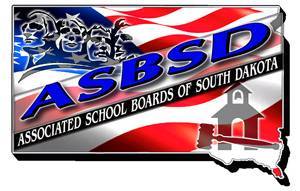Property tax adjustment bills have received more attention and discussion this session.
House Bill 1039, which provides for the assessment of certain agricultural land as noncropland, made it out of the House on a 38-30 vote, but was defeated in Senate Taxation on a 6-1 vote.
The bill sought to allow for ag land to be classified as noncropland, and thus taxed at a different rate, if it met certain criteria with proponents citing a tax system that does not work for certain pieces of ag land and the change being a necessity to correct this issue for these specific pieces of land.
A fiscal note for HB 1039 found a reduction in tax dollars of up to $12.5 million should the bill be passed.
ASBSD opposed the bill due to the potential affect on tax collections with ASBSD Executive Director Wade Pogany testifying the result would “a dollar for dollar loss” to the schools affected.
Another property tax adjustment proposal that met its demise was House Bill 1203, which establishes a revenue neutral rate for property taxes and requires a public hearing to increase.
The bill essentially sought to freeze property taxes by holding revenue collected at the previous year’s level and should more revenue be sought local government units would have to go through multiple processes to get their levies raised to meet their revenue needs. Proponents of the bill said the aim was for tax relief.
ASBSD opposed the bill due to its affect on available tax revenue for schools, as well as the onerous, and nearly duplicative, process related to budgeting.
It took seven votes by the House Taxation committee to get HB 1203 to the House floor where it was stopped on a 30-38 vote.
A third property tax related bill remains in play in the legislature.
House Bill 1325, which revises the classification of agricultural land according to soil type, passed the House Ag committee 12-1 and the House on a 64-3 vote.
The bill allows for class 4 soil types to be classified as non-cropland if it meets specific criteria, which Rep. Kirk Chaffee, the bill’s prime sponsor, said would help “find the right value” for the land to be taxed at.
SD Corn Growers Association Lobbyist Matt McCaulley argued the change in designation would result in a valuation change that “needs to be made up somewhere else” and could cause a “broad shift” in tax responsibility that could “have unintended consequences.”
ASBSD is monitoring the bill, which awaits a hearing by the Senate Ag committee.
For updates on these bills and other pieces of legislation from the 2022 session, check the ASBSD Blog and Billtracker page.
